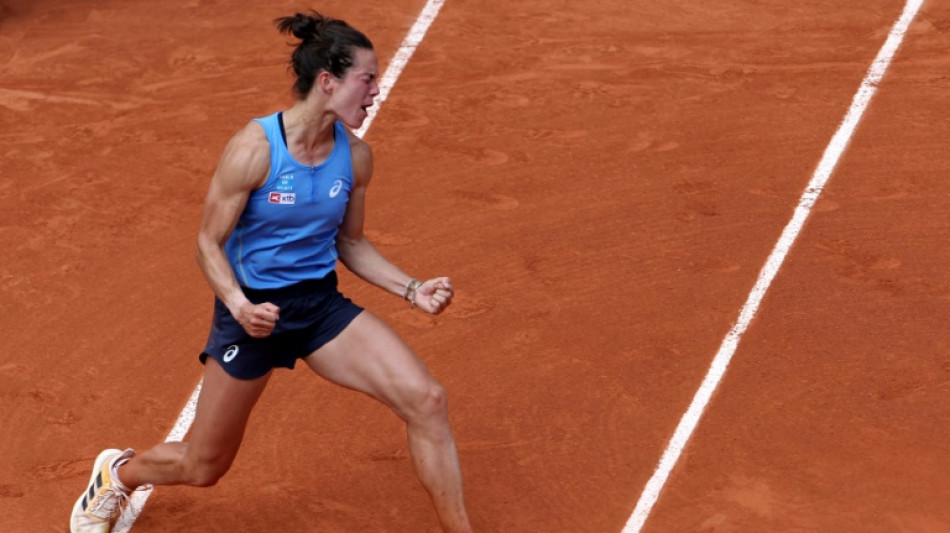

Lois Boisson: from unknown to great home hope at Roland Garros
French Open quarter-finalist Lois Boisson has captured the hearts and minds of her compatriots as her remarkable run in Paris has dragged the French world number 361 from obscurity to stardom.
Handed a wildcard to enter the tournament, the 22-year-old hit the headlines in France on Monday when she kept home hopes alive by battling past third seed Jessica Pegula to reach the last eight.
That come-from-behind 3-6, 6-4, 6-4 win in the fourth round meant the previously unheralded Boisson had become the first French player, male or female, to attain the quarter-final stage at Roland Garros since 2017.
She is the lowest-ranked woman to reach a Grand Slam quarter-final since former top-20 player Kaia Kanepi did so at the 2017 US Open, and is the first to do so on debut at a major since Carla Suarez Navarro at Roland Garros in 2008.
Boisson's underdog story was hailed as a "fairytale at Roland Garros" by French daily Le Monde, while Le Figaro basked in her "incredible adventure".
Already the sole French representative left in the last 16 on either side of the draw, few gave the Dijon-native much chance of keeping the tricolore flying in Paris before her match against US world number three Pegula.
Stepping onto Court Philippe Chatrier for the first time to play a match, Boisson showed no signs of nerves as her ferocious forehand and the backing of the showpiece stadium's partisan crowd got her over the line against her much-fancied opponent.
"When I came on the court to do the warm-up, was, like, incredible for me. You know, I watch the stadium, and I told to myself 'Okay, I will play matches on this court, but it's okay. It's a court like every court'," said Boisson.
Although not quite at capacity at the start of the match, Boisson's fightback soon captured the Parisian spectators' attention.
"In the beginning, even though there weren't many, you can still hear them on centre court," she recounted. "But for the third set, it was full. It was incredible. As soon as a point was tight, it (the support) would be really incredible."
Despite this new-found fame, Boisson is adamant she won't let it go to her head as she stays focussed on her "dream" Roland Garros.
"During the tournament, I'm trying to stay in my bubble and not to see what's happening around me," she said. "No, things are not going to change for me. They're going to continue in the same way.
"It's just that my ranking will enable me to play larger, more important tournaments. That's the only thing that's going to change."
- 'Tough to swallow' -
If mainstream notoriety is new to her, it is not the first time Boisson has had her name on the lips of the tennis world.
Last April, British player Harriet Dart generated a mini-social media storm when she was overheard asking the chair umpire to request Boisson apply deodorant during their match at a 250 event in Rouen.
Boisson laughed off the incident at the time, responding with a pithy request for a collaboration with a toiletries company, but now it's her playing that has people talking.
The daughter of a former professional basketballer, Boisson first picked up a racquet at the age of eight.
In early 2021, at the age of 17, she made her debut on the main circuit at the WTA 250 tournament in Lyon.
Eliminated in the qualifying rounds of the French Open in 2021, 2022 and 2023, she was a serious contender for an invitation to the main draw last year, after winning four clay-court tournaments on the secondary circuit in the spring of 2024.
But shortly prior to the start of the tournament, she ruptured the anterior cruciate ligament in her left knee.
"The injury was very tough to swallow," said Boisson, who missed nine months of action while on the treatment table.
A year later, she finds herself in the quarter-finals in Paris, where she will face the rising star of the woman's game and Russian sixth seed Mirra Andreeva with a chance to write her own chapter in French tennis history.
F.Schneider--VZ



